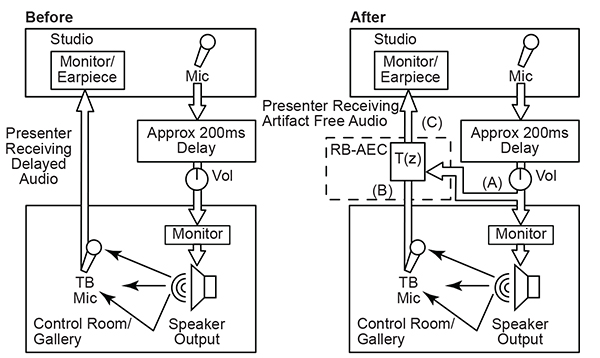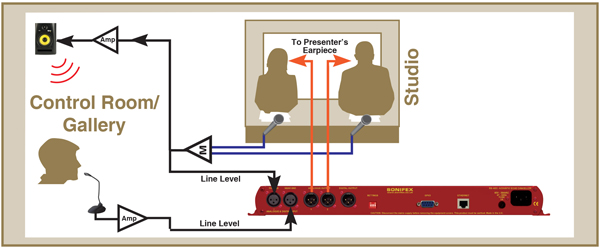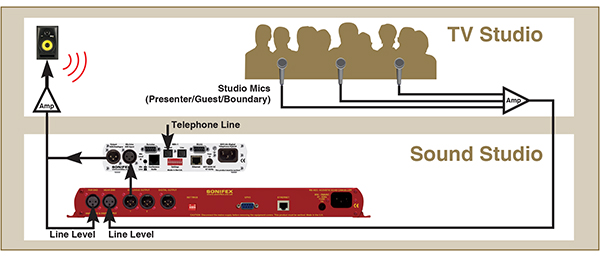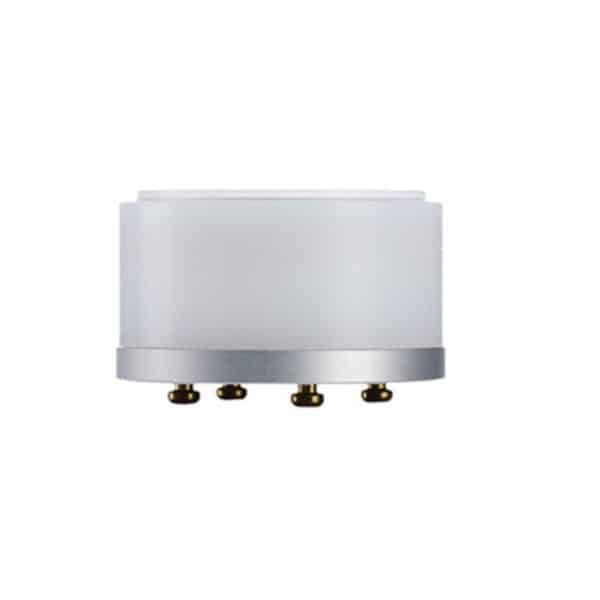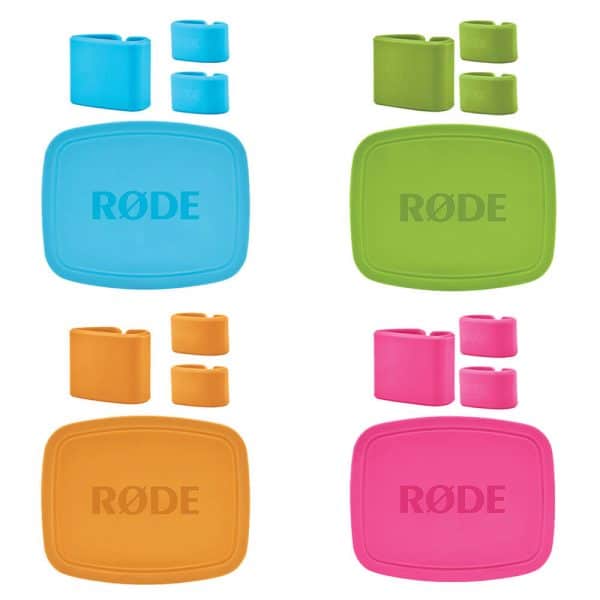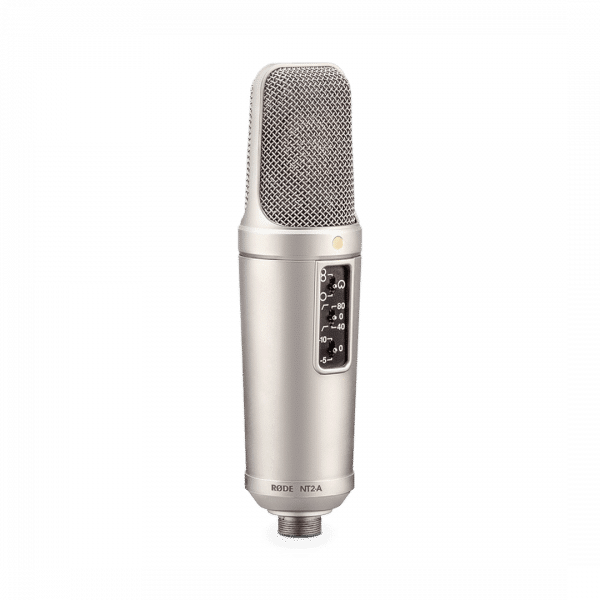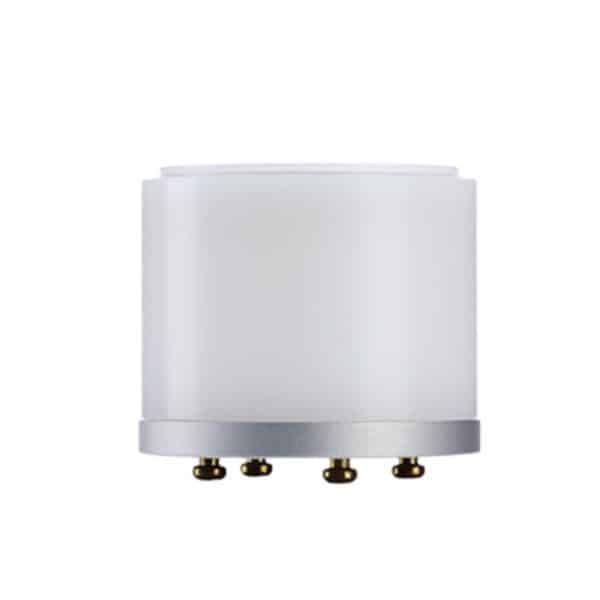Sonifex RB-AEC Acoustic Echo Canceller (1U)
Original price was: £1,020.00.£998.00Current price is: £998.00.
Sonifex RB-AEC Acoustic Echo Canceller
The Sonifex RB-AEC 1U rack-mount is an acoustic echo canceller primarily designed for the benefit of studio personnel for television and radio. When a studio presenter’s microphone signal is played out through a monitor speaker in the control room, it can be picked up by the control room microphone(s) and returned to the presenter’s earpiece as an undesirable echo.
Description
In circumstances where green screen video processing is taking place, the delay can be greater than 200ms. Additionally, the dimensions, occupancy and distance between mouth and microphone can further influence the echo. The RB-AEC is used to remove the entire control room monitor speaker output from the presenter´s feed by adapting to the environment in which the control room microphones are placed. Although acoustic echo cancellation is more commonly implemented in telephony systems, the Sonifex RB-AEC is designed to produce broadcast quality cancellation.
Much like during a conference call configuration between two rooms, each room has a microphone and speaker to conduct a conversation. When an occupant of one room speaks, it takes a certain length of time before it is received in the second room. Without a suitable solution this “delayed” signal can then be captured by the microphone in the second room and returned back to the first room as an echo.
In the particular example of TV production, as well as the processing/transmission delay, sound reflections from the control room monitor speaker into the control room microphone(s) cause the studio earpiece to suffer further delay. The sound reflections in the control room vary with the contents of the room including any personnel present. Also, different frequencies produce varying reflections across various types of surfaces and magnitudes within the room. For a 15m distance between speaker and microphone the delay is as much as 40ms.The DSP solution offered by the RB-AEC can dynamically compensate for varying configurations.
Operation of the RB-AEC
The post-processed transmission output program from the studio (A) is sent to the RB-AEC as an analogue or digital audio signal (the stereo input is auto-sensing) which acts as a mix-minus to the input signal (B) from the Control Room. The RB-AEC removes the unwanted acoustic echoes so that the audio sent to the presenter?s earpiece (C) is free of echoes and reflection artifacts.
RB-AEC Diagram.
Applications
How to Remove Delayed Presenter´s Audio From Their Earpiece
The Problem:
Microphone audio from the presenter(s) is played aloud in the control room/gallery, where a live microphone allows the director to talk to the presenter(s) via their earpiece(s). This live microphone also inadvertently picks up the presenter?s microphone audio and feeds it back to them in delay, causing a disconcerting self-echo in their earpiece.
The Solution:
- Connect the director?s microphone signal (at line level) to the RB-AEC near-end input.
- Connect the gallery monitor signal (at line level, containing the presenter?s microphone audio) to the RB-AEC far-end input.
- Connect the RB-AEC output(s) to the presenter?s earpiece(s). Turn on the RB-AEC.
- Allow the presenter(s) to talk for 1 minute without the director using their microphone (though it must still be active). The RB-AEC will learn the environment and the echo will gradually disappear from the presenter?s earpiece(s). The coefficients are stored and loaded on power-up. This process will not need repeating unless the environment changes.
RB-AEC Delayed Presenter Audio Diagram.
How to Remove Delayed Caller Audio From The Telephone Line
The Problem:
Caller audio from the telephone hybrid is played aloud in the TV studio, where live microphones are fitted to presenters and guests (boundary microphones may also be present). These live microphones also inadvertently pick up the caller?s audio and feed it back to them in delay, causing an undesirable self-echo.
The Solution:
- Connect the mixed studio microphones signal (at line level) to the RB-AEC near-end input.
- Connect the TBU output to the RB-AEC far-end input.
- Connect the RB-AEC output(s) to the hybrid?s input (in line mode). Turn on the RB-AEC.
- Make a test call and allow the caller to talk for 1 minute, their voice played aloud through the studio monitor and being picked up by all studio microphones (which should be in-position and active but not being used). The RB-AEC will learn the environment and the echo will gradually disappear from the phone line. The coefficients are stored and loaded on power-up. This process will not need repeating unless the environment changes.
RB-AEC Delayed Caller Audio Diagram.
Technical Specification For RB-AEC |
|
Audio Specification |
|
| Audio Input (Program): | 1 x mono analogue or AES/ EBU digital on XLR 3-pin female (autoselecting) |
| Audio Input (From Control Room) | 1 x mono analogue or AES/EBU digital on XLR 3-pin female (autoselecting) |
| Max Level (0dB Input Gain): | +18dBu (analogue)/0dBFS (digital) |
| CMRR: | >60dB typical |
| Input Impedance: | 20kΩ (analogue) 110Ω (digital with termination switchable) |
| AES/EBU Input: | 32kHz to 192kHz |
| Input Gain: | 0, +6, +12 or +18dB digital gain (switchable) |
| Audio Outputs (Analogue): | 2 x mono analogue on XLR 3-pin male |
| Audio Outputs (AES/EBU): | 1 x stereo digital AES/EBU on XLR 3-pin male |
| Maximum Output Level: | +18dBu (analogue)/0dBFS (digital) |
| Output Impedance: | <50? (analogue)/110? (digital) |
| AES/EBU Output Sample Rates: | Selectable 32kHz – 192kHz |
| Distortion: | <0.02% (1kHz, +8dBu output) |
| Noise: | -84dB RMS, unity gain ref +8dBu output |
| Frequency Response: | 20Hz-12kHz +0/-0.5dB |
| Rejection Ratio (Input to Output): | Typically 20dB on complex waveforms, reference peak level of 0dB |
| Remote I/O Port: | 9 way D-Type socket |
| Ethernet Port: | 1 x RJ45 with status LEDs |
| Mains Input: | Filtered IEC, continuously rated 85 264VAC @ 47-63Hz, 10W max |
| Fuse Rating: | Anti-surge fuse 1A 20 x 5mm |
Controls |
|
| Configuration: | 1 x Ethernet port and 1 x rear panel 4-way dipswitch |
| Reset: | 1 x front panel recessed button |
Equipment Type |
|
| RB-AEC: | Acoustic echo canceller |
Physical Specification |
|
| Dimensions (Raw): | 48cm (W) x 10.8cm (D) x 4.2cm (H)(1U) 19″ (W) x 4.3″ (D) x 1.7″ (H) (1U) |
| Dimensions (Boxed): | 58.5cm (W) x 22.5cm (D) x 7cm (H) 23″ (W) x 8.9″ (D) x 2.8″ (H) |
| Weight: | Nett: 1.5kg Gross: 2.0kg Nett: 3.3lbs Gross: 4.4lbs |


